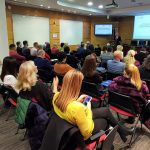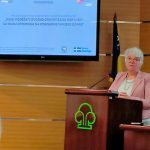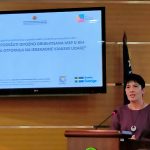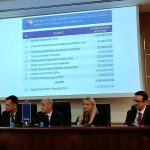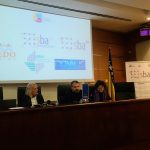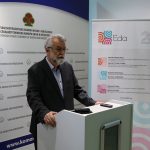The fifth annual conference on supporting small and medium-sized enterprises in Bosnia and Herzegovina fully met the expectations of the organizers and about 50 participants, enabling the presentation and mapping of available and planned support instruments by domestic institutions and international organizations, which can potentially contribute to the creation of resilience of export-oriented SMEs to sudden external shocks, on the one hand, as well as the challenges, experiences and needs of companies, on the other hand.
It was concluded that successive unexpected global shocks (the financial crisis at the end of the first decade, the pandemic crisis, the current energy and political crisis…) represent a new reality with a series of unexpected consequences for exporters, and that there are still no reliable business strategies, nor adapted and effective policies and support instruments, in response to such situations. Nevertheless, the strategic intent for all is clearly indicated: companies should build resilience as a strategic capacity to deal with shocks, and institutions and support programs should help them in this.
In the first part of the conference, a number of instruments of financial support and technical assistance were presented by the Federal Ministry of Development, Entrepreneurship and Crafts, the Ministry of Economy and Entrepreneurship of the Republic of Srpska, the Foreign Trade Chamber of BiH, GIZ (projects EU4DigitalSME, EU4BusinessRecovery and GreenRecovery), UNDP, and the Sarajevo Regional Development Agency SERDA, the Enterprise Development Agency Eda and the Center for Sustainable Energy Transition ReSeT (projects C2C, SBA in BiH2EU, ETI4BiH, all supported by Sweden). There is a noticeable trend of increasing the number and value of financial support instruments from domestic institutions, as well as a clear orientation of international support towards innovation, digital transformation, energy transition, green and circular economy, with the piloting of instruments that facilitate and accelerate such a transition.
In the second part, representatives of the company Tri best d.o.o. and Ramex d.d. with the representatives of VTK BiH talked about the challenges they face, about the presented instruments and about the needs and problems that have not yet been solved. During the dynamic and very interesting discussion, they were joined by representatives of companies from the metal, textile, food and wood processing industries, as well as representatives of institutes from the field of quality infrastructure. During the panel discussion and discussion, several necessary areas of intervention and support were indicated: basic measures for increasing competitiveness (relieving the burden on the economy, retaining the workforce, protecting domestic raw materials, strengthening the quality infrastructure, building domestic brands) as well as upgrade measures, i.e. projects of the future that is already started (automation of processes and digitization, energy transition and gradual transition to a green economy, management knowledge and skills, product and process innovations). It was recommended that the shortening of procedures and the digital transformation of the public sector proceed in parallel and at an accelerated pace, and that grants through international projects simplify the requirements regarding application and necessary documentation, and extend the time for the implementation of approved projects.
This conference opened the process of adapting and creating policies and instruments to support the building of resilience of small and medium-sized enterprises as a strategic response to sudden external shocks.
Like the previous four, the fifth annual conference was held with the support of Sweden, within the project “Advanced implementation of the Small Business Act in BiH2EU – SBA in BiH2EU”. The organizers were the Chamber of Foreign Trade of Bosnia and Herzegovina and the Enterprise Development Agency Eda, with program cooperation with GIZ and UNDP.
On behalf of the organizers, we thank all participants for their active participation and readiness to face new challenges.
The presentation that was used as a basis for the discussion at the conference is available here: https://bit.ly/3FDkFF3










